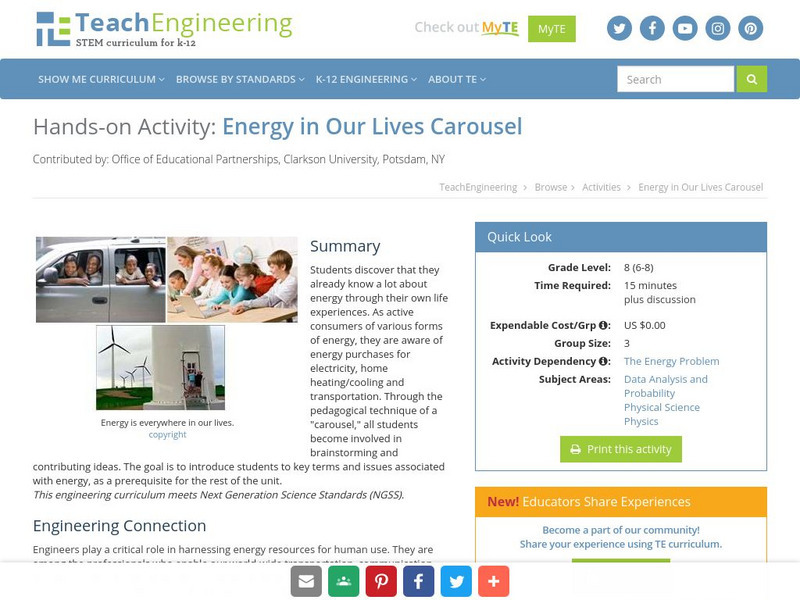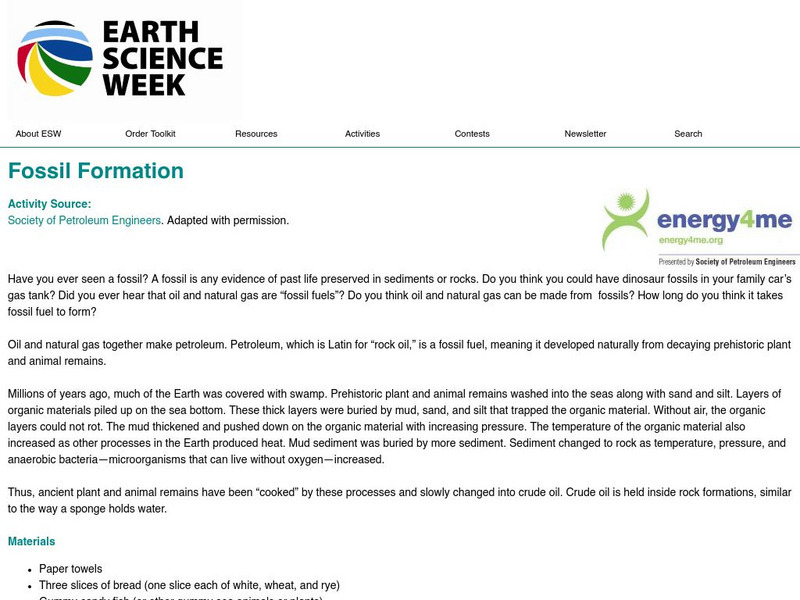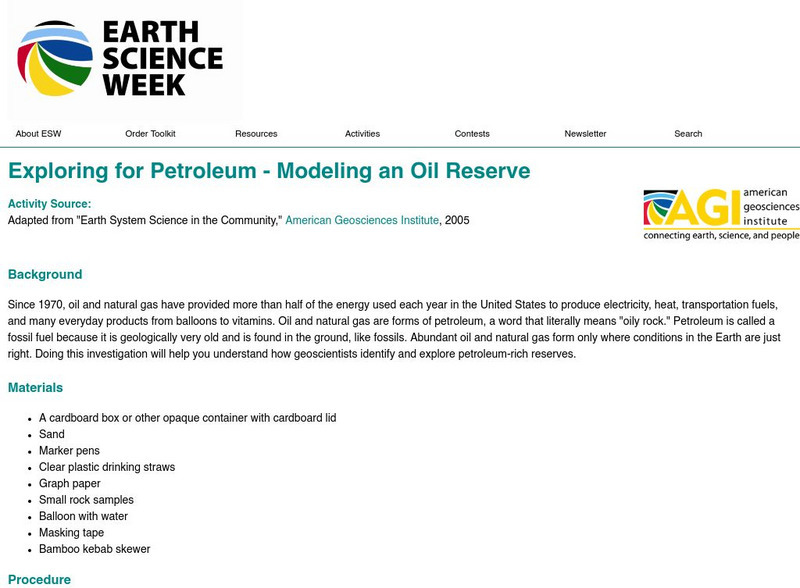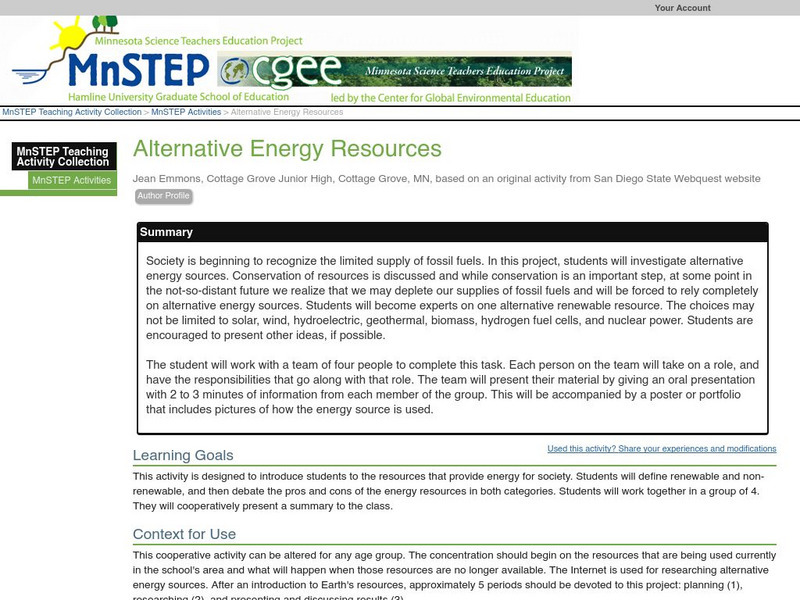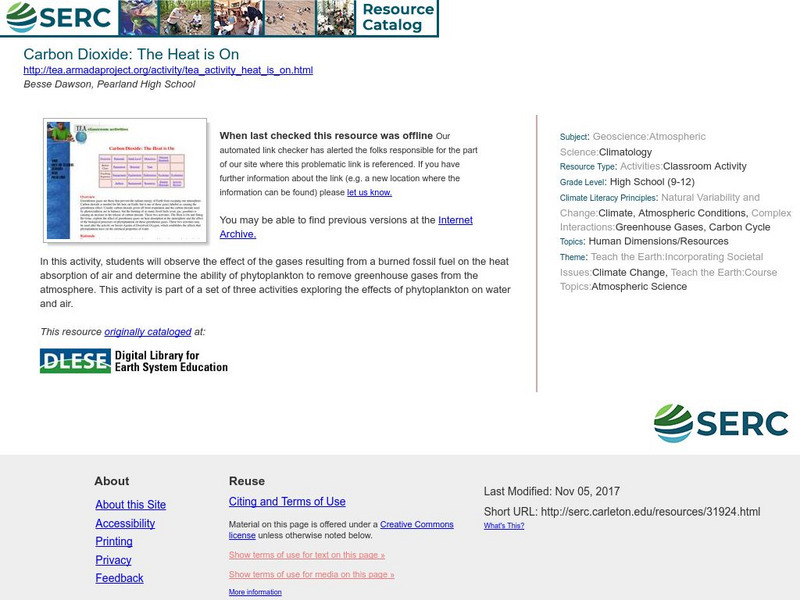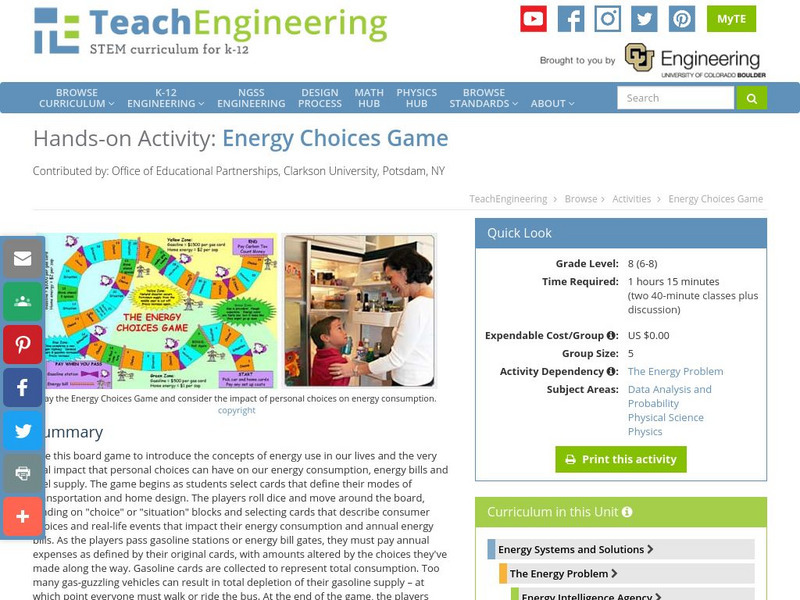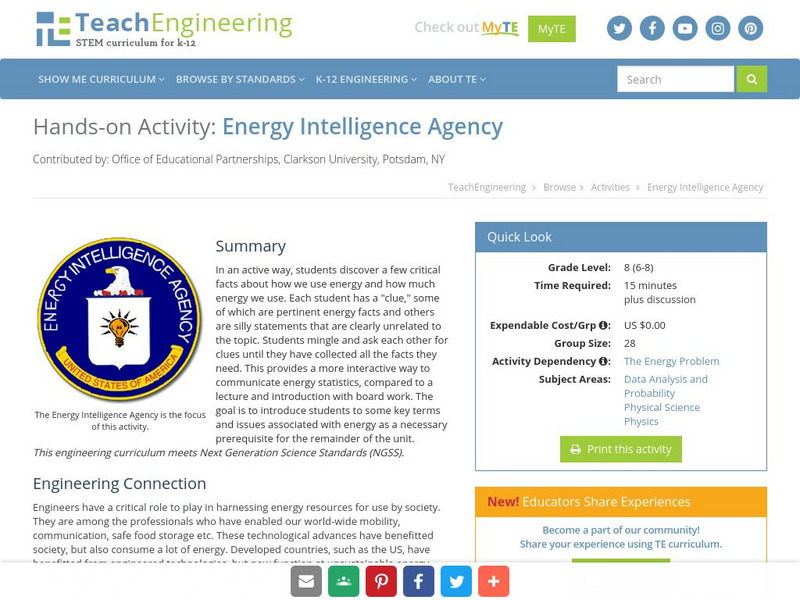Hi, what do you want to do?
Curated OER
Breaking News English: The Year 2007 to be the Hottest Ever
In this English worksheet, learners read "The Year 2007 to be the Hottest Ever," and then respond to 47 fill in the blank, 7 short answer, 20 matching, and 8 true or false questions about the selection.
Curated OER
Acid Rain - Go Away
Students set up an experiment and make observations of the effect of acid rain.
Curated OER
WATTS UP?
Second graders research the Internet as they classify different forms of energy, investigate electrical energy and how to conserve energy.
Curated OER
Transport
Students analyze wind barbs and determine which way the wind is blowing and how hard the wind is blowing. They access near real time wind data and pollutant animations to track the transport and destination of pollutants.
Curated OER
Finding Coal Products in Your Home
Middle schoolers identify items in their homes that come from coal. They divide into groups and decide as a group which items are made from coal by-products. They then divide their poster board into three columns and label the first -...
Curated OER
Physics- global warming
Students discuss the concept of global warming and view a multimedia clip on the global warming phenomenon. They statistically analyze mean temperature data and compare a given set of data. Data on atmospheric CO2 is done then they...
Curated OER
Linkages Between Surface Temperature And Tropospheric Ozone
Pupils organize and analyze data regarding changes in tropospheric ozone and then hypothesize about the consequences of these changes.
Curated OER
Greenhouse Effect
Learners identify greenhouse gases. They explain why perfluorocarbons are a bad alternative to chlorofluorcarbons. They determine both the least and most influential greenhouse gases.
American Museum of Natural History
American Museum of Natural History: Fossil Fuels O Logy Card
Check out this Ology card and activity identifying fossil fuels.
TeachEngineering
Teach Engineering: Energy in Our Lives Carousel
This activity is a way for students to discover that they already know a lot about energy through their own life experiences. As active consumers of various forms of energy, they are aware of energy purchases for electricity, home...
TeachEngineering
Teach Engineering: Corn for Fuel?!
In this activity, students examine how to grow plants the most efficiently. They imagine that they are designing a biofuels production facility and need to know how to efficiently grow plants to use in this facility. As a means of...
National Geographic
National Geographic: Natural Gas: A Cleaner Energy Solution?
For this activity, students read informational text on natural gas and compare it to other fossil fuels for its greenhouse gas emissions and environmental impact. They then prepare a pro or con position on whether natural gas is good...
American Geosciences Institute
American Geosciences Institute: Earth Science Week: Fossil Formation
Learn how fossils are created.
TeachEngineering
Teach Engineering: Rolling Blackouts & Environmental Impact
The goal is for the students to understand the environmental design considerations required when generating electricity. The electric power that we use every day at home and work is generated by a variety of power plants. Power plants...
TeachEngineering
Teach Engineering: Engineering for the Earth
Young students are introduced to the complex systems of the Earth through numerous lessons on its natural resources, processes, weather, climate and landforms. Key earth science topics include rocks, soils and minerals, water and natural...
American Geosciences Institute
American Geosciences Institute: Earth Science Week: Exploring for Petroleum Modeling an Oil Reserve
Experience the process of searching and drilling for oil in this hands-on activity.
Other
Abc Da Energia
ABC Da Energia describes the many ways that energy can be obtained and conserved. It explains different sources of energy, how each works, and how energy can be saved in our daily lives. Interactive energy-saving activities and games...
Alberta Online Encyclopedia
Alberta Online Encyclopedia: Alberta's Petroleum: Heritage Edukit (Teachers)
The lesson plans in this resource were developed by local classroom teachers, are interdisciplinary and feature fill in the blank and role-playing exercises, activities, timelines, charts and questions. The intent is to help teachers...
Science Education Resource Center at Carleton College
Serc: Alternative Energy Resources
Society is beginning to recognize the limited supply of fossil fuels. In this project, students will investigate alternative energy sources. Conservation of resources is discussed and while conservation is an important step, at some...
Khan Academy
Khan Academy: Activity: This Threshold Today
Use the Internet to search for news stories about the Modern Revolution and discuss the provided questions. Helpful links are provided to get you started.
Science Education Resource Center at Carleton College
Serc: Carbon Dioxide: The Heat Is On
In this activity, students will observe the effect of the gases resulting from a burned fossil fuel on the heat absorption of air and determine the ability of phytoplankton to remove greenhouse gases from the atmosphere. This activity is...
TeachEngineering
Teach Engineering: Energy Choices Game
Use this board game to introduce the concepts of energy use in our lives and the very real impact that personal choices can have on our energy consumption, energy bills and fuel supply. The game begins as students select cards that...
TeachEngineering
Teach Engineering: Energy Intelligence Agency
This activity provides an active way for students to discover a few critical facts about how we use energy and how much energy we use. Each student has a "clue", some of which are pertinent energy facts and others are silly statements...
TeachEngineering
Teach Engineering: Renew a Bead
A quantitative illustration of how non-renewable resources are depleted while renewable resources continue to provide energy. The activity requires students to remove beads (units of energy) from a bag (representing a country). A certain...














